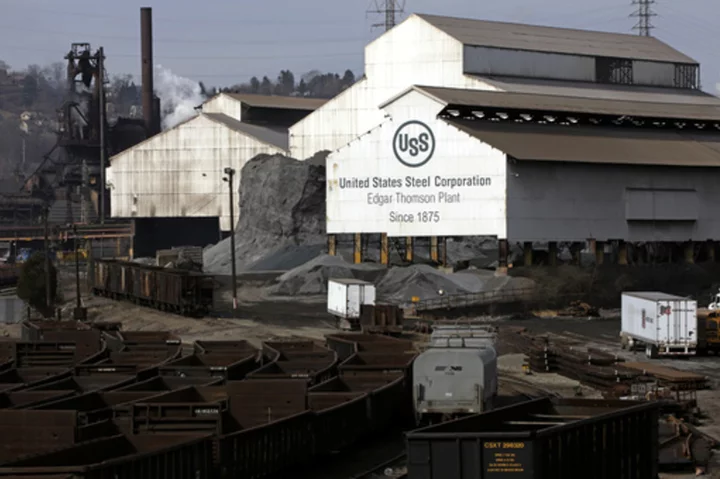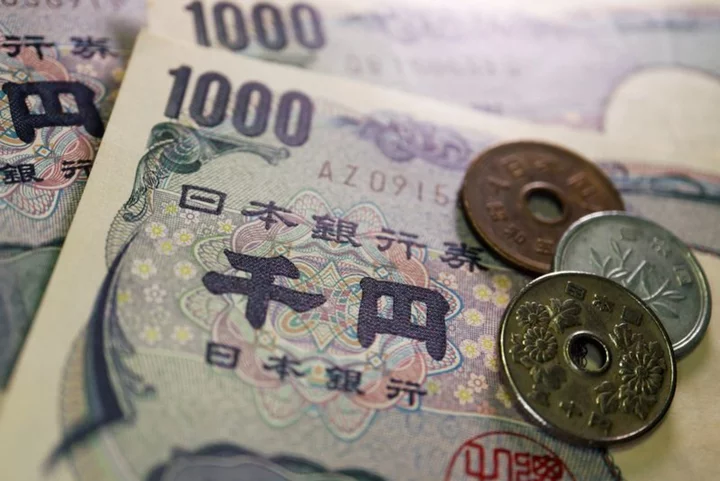By Arathy Somasekhar
HOUSTON (Reuters) -Global oil benchmark Brent crude neared $95 a barrel on Monday, with investors focused on the prospect of a widening supply deficit in the fourth quarter after Saudi Arabia and Russia extended supply cuts.
Brent crude futures rose 79 cents to $94.72 a barrel by 11:57 a.m. ET (15:57 GMT), while U.S. West Texas Intermediate crude futures were up $1.24 at $92.01.
Brent and WTI have climbed for three consecutive weeks to touch their highest since November and are on track for their biggest quarterly increases since Russia's invasion of Ukraine in the first quarter of 2022.
"The price is buoyed by expectations of a widening supply deficit in the coming quarters as Saudi Arabia and Russia will extend oil production cuts to the end of the year and amid optimism surrounding the demand outlook in China, the world’s largest oil importer," said Fiona Cincotta, Senior Financial Markets Analyst, City Index, a trading services provider.
Citi on Monday became the latest bank to predict that Brent prices could exceed $100 a barrel this year. Chevron Chief Executive Mike Wirth also said he thinks oil will cross $100 per barrel in a Bloomberg News interview.
Saudi Arabia and Russia this month extended a combined 1.3 million barrels per day (bpd) of supply cuts to the end of the year.
These curbs could push the market into a 2 million bpd deficit in the fourth quarter and a subsequent drawdown in inventories could leave the market exposed to further price spikes in 2024, ANZ analysts said.
Saudi Arabia's energy minister, Prince Abdulaziz bin Salman on Monday defended OPEC+ cuts to oil market supply, saying international energy markets need light-handed regulation to limit volatility.
There was ongoing uncertainty about Chinese demand, European growth and central bank action to tackle inflation, he added.
The question is whether the cuts will continue into next year, Callum Macpherson, head of commodities at Investec, said, "given the risk that higher prices must surely, at some point, stimulate US shale (oil output)".
Either way, demand concerns remain. China, considered the engine of oil demand growth, is a key risk because of its sluggish post-pandemic economic recovery, though its oil imports have remained robust.
A series of stimulus measures and a summer travel boom helped industrial output and consumer spending to rebound last month and Chinese refineries ramped up output, driven by strong export margins.
"Lack of protracted (economic) progress, nonetheless, will be viewed as a major setback on the demand side," said Tamas Varga of oil broker PVM.
"What's striking is that this relentless oil price rally has taken place even amid concerns about lower demand from Europe and China as those economies grapple with a severe slowdown, which demonstrates just how tight the supply side of the equation has become," said Marios Hadjikyriacos at broker XM.
Eyes will also be on central banks this week, including an interest rate decision from the U.S. Federal Reserve.
There is growing consensus that peak interest rates are not far away as inflationary pressure, in general, has been successfully mitigated, PVM's Varga said.
"Investors, however, remain puzzled over when central banks will start cutting them," he said. "The high-for-longer mantra would ultimately have a negative impact on economic growth and would affect oil demand."
(Reporting by Arathy Somasekhar in Houston, Natalie Grover in London and Florence Tan and Sudarshan Varadhan in Singapore; Editing by David Goodman and Timothy Gardner)









